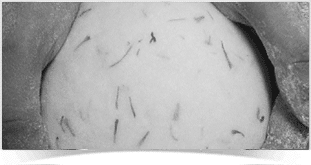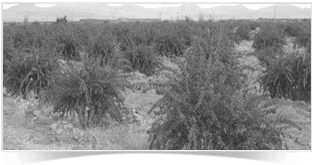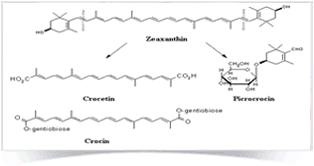


We are here to supply the best one, purest and fresh Iranian saffron. At ISC®; we believe that our health is our wealth!
Saffron contains more than 100 components, but the three most promising appear to be: Crocin, which is responsible for its orange color; Picrocrocin, which provides its bitter taste; and Safranal, which gives its aroma.
Saffron is known for its possible therapeutic effect on cancer. And, indeed, a growing body of laboratory evidence indicates that saffron does have anticancer effects. This property was first described in papers by the Indian scientist S.C. Nair in 1991. Dr. Abdullayev confirmed and extended Nair's findings the following year. Later, scientists from Greece (Petros A. Tarantilis, 1994) and Spain (Julio A. Escribano, 1996) supported these results.
In the last decade, research on saffron's antitumor effects has been published in about 40 experimental and review articles. Just as saffron is produced in many parts of the world, so anticancer research on saffron is also a multinational effort, and involves scientists from Azerbaijan, Greece, Hungary, India, Japan, Mexico, Spain, USA and other countries.
For example, extracts of saffron have been shown to inhibit the formation of tumors and/or to retard tumor progression in a variety of experimental animal systems. The topical application of a saffron extract has been shown to inhibit both the initiation and the promotion of cancer by a common carcinogen, DMBA, which is used to induce skin cancer for experimental purposes. Researchers found that feeding mice with a saffron extract prevented the formation of soft tissue sarcomas.
The exciting news is that saffron extracts have been shown to significantly prolong-almost by three-fold-the life spans of mice undergoing experimental chemotherapy with the toxic anticancer drug, cisplatin. Saffron also partially prevented the decrease in body weight, hemoglobin levels and leukocyte counts associated with that form of chemotherapy (Nair, 1991).
Another study showed that when saffron was combined with two other substances, the amino acid cysteine and the antioxidant vitamin E, it had a protective effect against the toxicity of cisplatin. Together, these three protective agents significantly reduced blood urea nitrogen, serum creatinine and blood glucose levels, as well as reduced many other harmful chemical changes in the body (el Daly, 1998).
- Anti-cancer activity. A growing body of research has demonstrated that Saffron and its main constituents, the carotenoids, process chemopreventive properties against cancer.
- Anti-tumor
- Antioxidant. collections of free radicals
- Help vision loss in elderly. Saffron in the management of memory Loss (Alzhimer)
- positive effects in lowering blood cholesterol
- Digestive problems
- Treating Asthma
- Insomnia
- Menstrual problems
- Common colds
- Inflammation
- Depression. A recent study suggests that saffron may be as effective as Prozac in treating mild to moderate depression.
- Positive effects in triglycerides among heart patients
- Strengthens the heart and nervous system
- Relieve Nosebleeds
- Relieve fatique and exhaustion
- Profitable in relieving the muscle tenderness. by the helps of the tissues to avoid the lactic acid.
- Treating fever
- Effective baldness and dry skin
- Appetizer
- increased penetration of oxygen in Plasma
- Sexuality and sex drive booster
- To help digest food naturally
- Joyful, neurological pain treatment
- enhancing concentration
- anticonvulsant
- Increased blood flow in the retina, retinal disorders caused by yellow spots aging, symptoms related to ischemic retinopathy
- Treatment of respiratory diseases such as asthma, colds, cough
 |
 |
 |
| All Rights Reserved by Iranian saffron Club® |